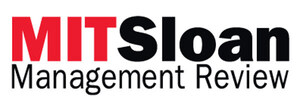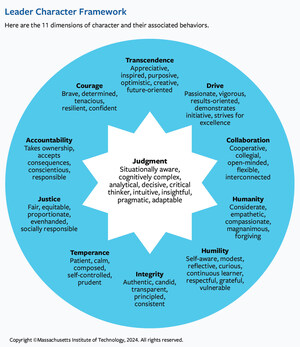Prominent Thought Leaders and Experts Explore Disruption -- From Its Exciting Future Potential to Challenges for Leaders to Ethical Dilemmas -- in MIT Sloan Management Review's Spring Issue, 'Disruption 2020'
"Disruption 2020" presents groundbreaking ideas on the subject of disruption from experts, academics, and pioneer thinkers, including the late Clayton Christensen, Amy Webb, Max Wessel, Nicole Helmer, Scott D. Anthony, and Michael Putz
CAMBRIDGE, Mass., March 10, 2020 /PRNewswire/ -- MIT Sloan Management Review (MIT SMR) announced today the launch of their spring issue, "Disruption 2020," which brings together ideas and insights from the foremost thinkers in the field to answer the question: What will it take to innovate and compete over the next decade? The unprecedented collection of contributors tackle issues of immediate importance to leaders in the age of disruption, including how the coming of AI, the rapid speed of innovation, and easy access to capital will affect how companies compete in the years ahead, and how businesses should navigate ethical uncertainties that arise with innovation.
"This is among the most exciting and important projects I have had the honor to be involved with," says Paul Michelman, editor in chief at MIT Sloan Management Review, who collaborated with guest editor Karen Dillon and editorial director Lisa Burrell on the issue.
The cornerstone of the issue is what turned out to be the final interview with the "father of disruptive innovation," the late Clayton Christensen, to whom the issue is dedicated. Christensen's longtime collaborator and issue guest editor Karen Dillon spoke with him to learn how he had refined his thinking in the 25 years since publishing The Innovator's Dilemma, what the future of innovation looked like through that lens, and what questions he was still wrestling with. "He was thrilled to learn how the academics and practitioners featured in this special issue were thinking about some of the biggest innovation challenges looming for companies," Dillon writes.
In "The 11 Sources of Disruption Every Company Must Monitor," Amy Webb — quantitative futurist, founder of the Future Today Institute and professor of strategic foresight at New York University Stern School of Business — explores the 11 sources of macro change that lead to disruption, including wealth distribution, infrastructure, government, economy, public health, and demographics. "Ignoring these potential sources of change leaves organizations vulnerable to disruption," she warns. She offers insight and guidance for leaders on how to spot patterns and contradictions in sources of disruption and how to incrementally address these forces.
In "How Leaders Delude Themselves About Disruption," Scott D. Anthony and Michael Putz contend with the question: Why are companies still so vulnerable to disruptive threats? From their respective positions as senior partner at a growth strategy consultancy and business development executive, they make the compelling argument that well-intentioned leaders who delude themselves make their companies more vulnerable by downplaying disruptive threats or overestimating the difficulty of response.
With reasoned urgency, in "A Crisis of Ethics in Technology Innovation," Max Wessel, chief innovation officer at SAP, and Nicole Helmer, decision scientist at SAP, grapple with the ethical issues of innovation. "In our increasingly modular world, companies can quickly tailor products to user demands; innovation and opportunity flourish, but so do the potential risks — not just to a company's bottom line and reputation but also to society at large. Innovation might be able to move with lightning speed, but our user protections do not," they write.
The issue also includes articles and insights from Brian Halligan on "The Experience Disrupters," Rita Gunther McGrath on "The New Disrupters," Joshua Gans with "To Disrupt or Not to Disrupt?," Michael A. Cusumano, David B. Yoffie, and Annabelle Gawer on "The Future of Platforms," and Marco Iansiti and Karim R. Lakhani with "From Disruption to Collision: The New Competitive Dynamics."
About MIT Sloan Management Review
At MIT Sloan Management Review, we share with our readers an excitement and curiosity about how the practice of management is transforming in the digital age. Our expert contributors help leaders explore the trends that are shaping how organizations operate, compete, and create value in a technology-fueled world. We deliver the kind of evidence-based analysis and practical insight that inspires leaders to do great work.
Contact |
|
Emily Lavelle |
|
Emily Lavelle Communications |
|
+1-212-390-1328 |
|
SOURCE MIT Sloan Management Review

Related Links
WANT YOUR COMPANY'S NEWS FEATURED ON PRNEWSWIRE.COM?
Newsrooms &
Influencers
Digital Media
Outlets
Journalists
Opted In





Share this article